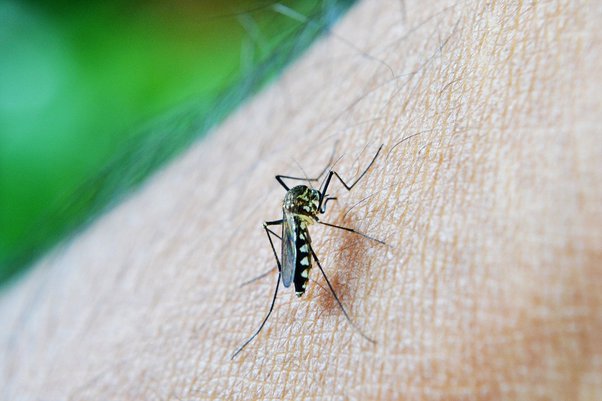Popping mosquito bites is not safe as it can lead to infection and further complications. It is best to avoid squeezing or scratching mosquito bites.
While it may be tempting to pop a mosquito bite, doing so can introduce bacteria and lead to infection. Instead, it is recommended to resist the urge to pop them and use other remedies to alleviate the itching and swelling.
Mosquito bites can be uncomfortable, but popping them is not a recommended solution. It is important to take proper care of mosquito bites to prevent any potential infections or adverse reactions. Remember to resist the temptation to pop mosquito bites to avoid complications.
Introduction To Mosquito Bite Reactions
Popping mosquito bites is not recommended as it can lead to infection and further complications. It is best to avoid squeezing or scratching the bites, as this does not remove the mosquito saliva from the skin. Instead, consider using remedies such as applying a warm compress to ease the discomfort.
The Body’s Response To A Bite
Mosquito bites trigger a series of reactions within the body. Upon being bitten, the mosquito’s saliva is introduced into the skin, causing the immune system to respond. This results in the release of histamines, which lead to the characteristic redness, swelling, and itching associated with mosquito bites.
Common Misconceptions About Bites
There are several misconceptions surrounding mosquito bites, one of the most prevalent being the belief that squeezing or popping the bite can provide relief. However, this can actually exacerbate the irritation and increase the risk of infection. Additionally, contrary to popular belief, blistered mosquito bites should not be burst, as doing so can lead to infection and further complications.
Mosquito Bites And Infection Risks
Popping mosquito bites is not safe as it can lead to infection. Squeezing or scratching the bite does not remove the mosquito saliva and can cause further issues. It is best to avoid popping and instead, apply a warm compress to ease the pain and help the bite heal.
Understanding The Risk Of Infection
Mosquito bites can lead to various infections if not treated properly. Avoid popping bites to prevent further complications.What Happens When You Pop A Bite
Popping a mosquito bite can introduce bacteria, leading to infections, swelling, and prolonged healing times.The Myth Of ‘popping’ Bites
When it comes to dealing with mosquito bites, there is a common misconception that ‘popping’ them can provide relief. However, this belief is not only ineffective but can also be harmful to your skin. Let’s explore the truth behind the myth of ‘popping’ mosquito bites.
Why Bites Don’t ‘pop’ Like Pimples
Mosquito bites are not filled with pus like pimples, so they cannot be ‘popped’ in the same way. Attempting to squeeze or puncture a mosquito bite can lead to skin damage and increase the risk of infection.
Dangers Of Attempting To Pop
- Avoid Infection: Popping a mosquito bite can introduce bacteria into the skin, causing infection.
- Delayed Healing: Breaking the skin barrier can prolong the healing process and increase discomfort.
- Risk of Scarring: Aggressive popping of bites may result in scarring or hyperpigmentation.

Credit: www.reddit.com
Medical Perspective On Managing Bites
To manage mosquito bites, it is not safe to pop them. Squeezing can lead to infection and further skin issues, as it doesn’t remove mosquito saliva. Instead, apply a cold compress and avoid scratching to reduce itching and swelling.
Expert Advice On Bite Treatment
When it comes to treating mosquito bites, it is important to follow expert advice to ensure proper healing and avoid any complications. While it may be tempting to pop or squeeze a mosquito bite, medical professionals advise against it. Dr. Wassef explains that squeezing the area of the bite will not remove the mosquito saliva from your skin, despite what you may have read online. This home remedy is ineffective and can potentially lead to further issues.Antibiotics And Abscessed Bites
In some cases, mosquito bites can become infected and develop into abscesses. If you notice signs of infection such as pus, a blister filled with clear fluid, swelling, pain, or redness, it is important to seek medical treatment. Infected mosquito bites are often treated with oral antibiotics. In more serious cases, intravenous antibiotics may be necessary. If you develop an abscessed mosquito bite, applying a warm compress can help ease the pain and promote drainage. Your healthcare provider may need to drain the abscess to remove the infection and facilitate healing.It’s also crucial to note that as a mosquito bite begins to heal, it may blister or resemble a pimple. However, it is advised not to pop or squeeze it. Popping a bug bite can introduce bacteria and increase the risk of infection. Instead, allow the bite to heal naturally and seek medical attention if you have any concerns about its progression.Remember, prevention is always better than cure when it comes to mosquito bites. Using insect repellent, wearing protective clothing, and avoiding mosquito-prone areas can significantly reduce the risk of being bitten. If you do get bitten, following proper bite management techniques will help ensure a safe and speedy recovery.Home Remedies And Effective Treatments
When it comes to treating mosquito bites, many people turn to home remedies in search of relief. However, not all of these remedies are effective, and some may even be harmful. In this section, we will debunk popular home remedies and recommend treatments that are proven to provide relief.
Popular Home Remedies Debunked
There are several home remedies that are commonly recommended for mosquito bites, but it’s important to separate fact from fiction. Let’s take a closer look at some popular home remedies and why they may not be the best course of action:
- Squeezing or Scratching: It is a common misconception that squeezing or scratching mosquito bites can help remove the mosquito saliva from your skin. However, this is ineffective and can actually lead to further irritation and potential infection. It is best to avoid squeezing or scratching mosquito bites.
- Draining the Bite: Some people believe that draining the bite can help alleviate the discomfort. While applying a warm compress can help with pain relief, it is important to note that draining the bite yourself can increase the risk of infection. If you suspect an infection, it is best to seek medical treatment.
- Popping the Bite: When a mosquito bite begins to heal, it may develop a blister or resemble a pimple. It can be tempting to pop these, but it is important to resist the urge. Popping a bug bite can introduce bacteria and potentially lead to infection. It is best to let the bite heal naturally.
Recommended Treatments For Relief
If you are looking for effective treatments to relieve the discomfort of mosquito bites, here are some options that have been proven to provide relief:
- Over-the-counter creams or ointments: There are various creams and ointments available that can help reduce itching and inflammation. Look for products containing ingredients like hydrocortisone or calamine lotion.
- Cold compress: Applying a cold compress or ice pack to the affected area can provide temporary relief from itching and swelling.
- Antihistamines: Taking an oral antihistamine can help reduce itching and inflammation caused by mosquito bites. It is important to follow the recommended dosage and consult with a healthcare professional if you have any underlying medical conditions.
- Preventive measures: The best way to avoid mosquito bites is to prevent them in the first place. Use mosquito repellents, wear protective clothing, and eliminate standing water in your surroundings to minimize the risk of mosquito bites.
Remember, while these treatments can provide relief, it is important to monitor the bite for any signs of infection. If you notice increasing redness, warmth, or pus, it is recommended to seek medical attention.
Preventing Mosquito Bites And Blistering
To prevent mosquito bites and blistering, it is not safe to pop mosquito bites. Squeezing or scratching the bites can lead to infection and further complications. It is best to avoid this practice and instead use anti-itch creams or cold compresses to alleviate discomfort.
Tips To Avoid Getting Bitten
Mosquito bites are not only annoying but can also transmit diseases such as malaria and dengue fever. Here are some tips to avoid getting bitten:- Wear long-sleeved shirts and pants when outdoors, especially during dawn and dusk, when mosquitoes are most active.
- Use insect repellent containing DEET, picaridin, or oil of lemon eucalyptus.
- Eliminate standing water around your home, as it is a breeding ground for mosquitoes.
- Install screens on windows and doors to keep mosquitoes out.
How To Deal With Blisters From Bites
Mosquito bites can sometimes turn into blisters, which can be uncomfortable and unsightly. Here’s how to deal with them:- Do not burst the blisters, as they may become infected.
- Clean the area with soap and water.
- Apply an ice pack to reduce swelling and itching.
- Use a topical cream containing hydrocortisone to relieve itching and inflammation.
- If the blister bursts, cover it with a sterile bandage to prevent infection.
When To Seek Medical Attention
Popping mosquito bites is not safe as it can lead to infection. If the bite becomes swollen, painful, or develops a blister, seek medical attention to prevent further complications. Avoid scratching or squeezing the bite to reduce the risk of infection.
When to Seek Medical AttentionIf you experience persistent swelling, extreme pain, or severe redness around the mosquito bite, it’s essential to seek medical attention. Additionally, if you notice pus, a blister filled with clear fluid, or any sign of infection, it’s crucial to consult a healthcare professional. Moreover, if you develop a fever, chills, or experiencing nausea, it’s advisable to seek immediate medical assistance.Signs of an infected biteIf you notice pus, a blister filled with clear fluid, swelling, or excessive redness, it may indicate an infected mosquito bite. In such cases, seeking medical treatment is advisable as it may require antibiotics to prevent further complications.Treatment options for severe reactionsIn the event of a severe reaction to a mosquito bite, medical treatment may be necessary. Some treatment options for severe reactions include oral antibiotics for infected bites and IV antibiotics for more serious infections. Applying a warm compress to an abscessed mosquito bite can help ease the pain and aid in drainage. However, if the infection persists, your healthcare provider may need to drain the abscess to remove the infection.Remember, it’s crucial to seek medical attention if you experience any of the aforementioned symptoms or if you have concerns about the severity of your mosquito bite reaction.The Dos And Don’ts Of Bite Care
Mosquito bites can be irritating and uncomfortable. It’s important to know the best practices for immediate care and the common mistakes to avoid when dealing with mosquito bites.
Best Practices For Immediate Care
- Wash the bite: Use mild soap and water to gently cleanse the affected area to reduce the risk of infection.
- Apply a cold compress: Using a cold compress or ice pack can help reduce swelling and alleviate itching.
- Use over-the-counter remedies: Applying calamine lotion or hydrocortisone cream can help relieve itching and inflammation.
- Keep the area clean and dry: Avoid scratching the bite to prevent further irritation and the risk of infection.
Common Mistakes To Avoid
- Don’t scratch the bite: Scratching can lead to further irritation, introduce bacteria, and increase the risk of infection.
- Avoid popping the bite: Popping a mosquito bite can lead to infection, scarring, and prolonged healing time.
- Avoid using harsh chemicals: Refrain from applying strong chemicals or substances to the bite as they may cause additional skin irritation.
- Don’t burst blisters: If blisters develop, refrain from bursting them as this can increase the risk of infection.
Conclusion: Best Practices For Bite Management
It is not recommended to pop mosquito bites as it can lead to further complications and infections. Instead, it is best to avoid squeezing or scratching the bite and to apply a warm compress to ease the pain and help it heal.
Seeking medical treatment may be necessary if the bite becomes infected.
Summary Of Safe Practices
When it comes to mosquito bites, it’s best to avoid popping or squeezing them. This can cause further irritation and increase the risk of infection. Instead, try to manage the itch and discomfort with safe practices such as:- Washing the affected area with soap and water
- Applying a cold compress to reduce swelling
- Using over-the-counter anti-itch creams or lotions
- Taking oral antihistamines to reduce itching
Final Thoughts On Mosquito Bite Treatment
Mosquito bites can be annoying and uncomfortable, but they usually go away on their own within a few days. It’s important to resist the urge to pop or scratch the bite, as this can lead to infection and scarring. Instead, focus on safe practices to manage the symptoms and promote healing. If you notice any signs of infection, such as pus or increasing redness and swelling, seek medical attention right away. With proper care, you can minimize the discomfort and inconvenience of mosquito bites.
Credit: www.reddit.com

Credit: www.today.com
Frequently Asked Questions
Can You Squeeze Mosquito Bites?
It is best to avoid squeezing or popping mosquito bites as it can lead to infection.
Can You Drain A Mosquito Bite?
Avoid popping mosquito bites as it can lead to infection. Apply a warm compress for relief.
Can You Pop A Mosquito Bite Like A Pimple?
Avoid popping mosquito bites like pimples. It can lead to infections and further issues. It’s best to refrain from squeezing or scratching mosquito bites to prevent complications.
Conclusion
It’s best to resist the urge to pop mosquito bites. Popping them can lead to infection and more discomfort. Instead, try using over-the-counter anti-itch creams or soothing remedies. If the itching persists or the bite becomes infected, seek medical advice for proper treatment.
Taking care of mosquito bites is essential for your overall well-being.
Related posts:

I’m MD Tanvir, and I bring years of expertise gained from working closely with pest control companies to the forefront. My journey in the industry has inspired me to launch Bug Battler, a platform aimed at equipping people with the know-how to combat pests autonomously. Through Bug Battler, I aim to empower individuals with practical insights to tackle pest infestations effectively.

